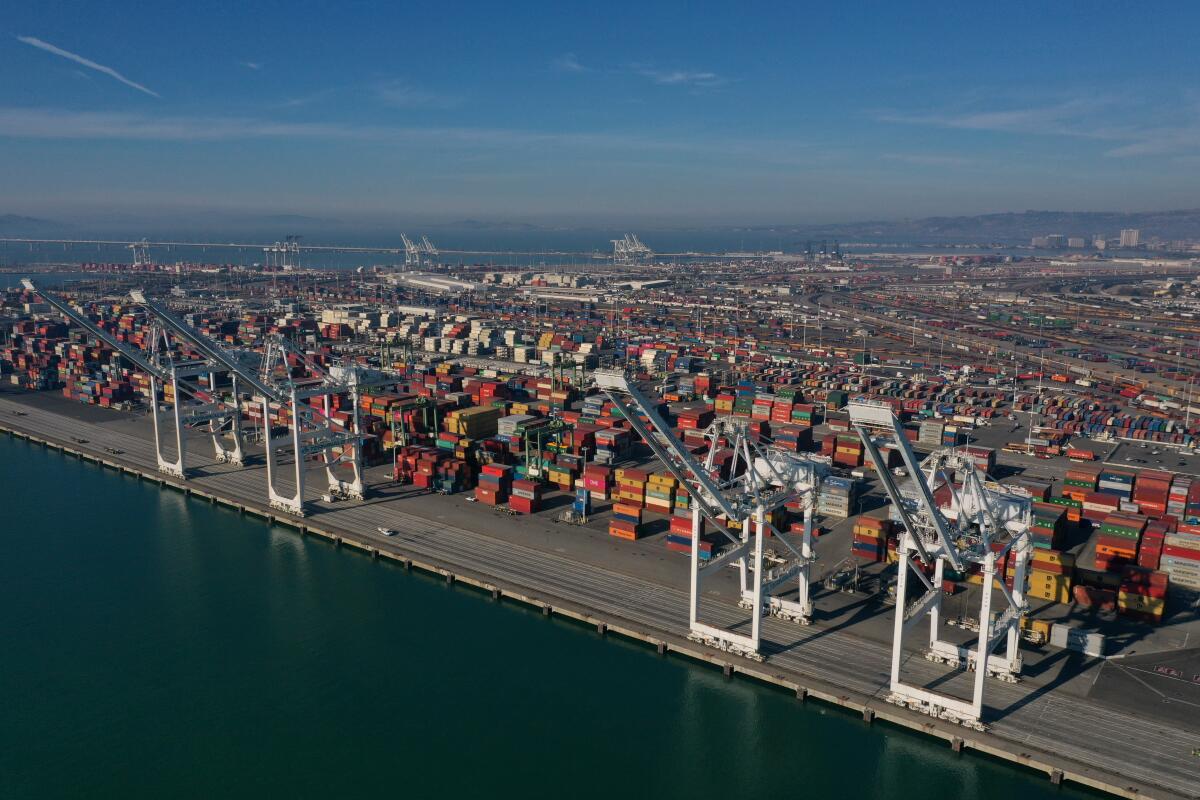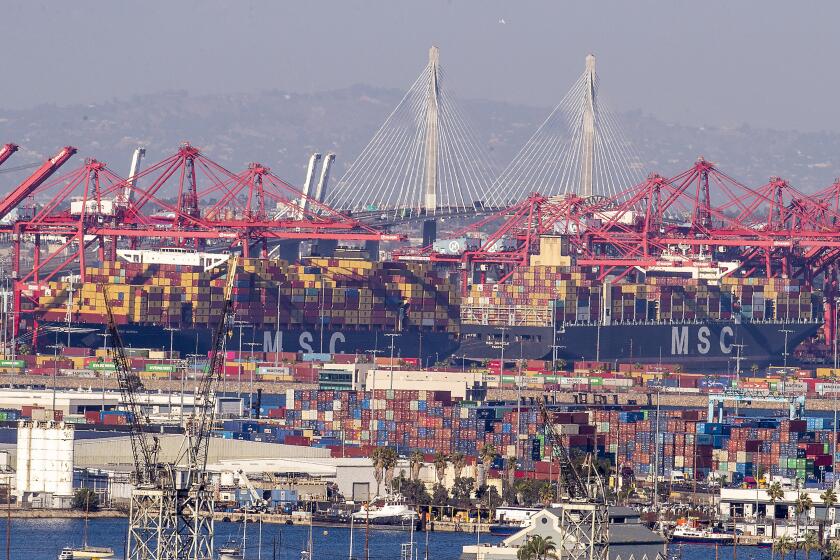With Oakland’s port jammed, walnut exporters look for alternatives

U.S. nut exporters — fed up with delays at the Port of Oakland — are in talks with top steamship and rail carriers for a new trade route to get their products overseas.
Northern California farm groups — including those representing walnut, wine and rice shippers — have had discussions with BNSF Railway Co., the largest U.S. railway, CMA CGM, the world’s No. 3 container-shipping line, as well as state officials on a plan to haul containers from California’s Central Valley to the port in Los Angeles, said Rachel Campbell, a spokesperson for the maritime operation.
About a quarter of all U.S. food is produced in the Central Valley.
The goal is to find an alternative to Oakland, a San Francisco Bay Area port grappling with severe supply chain snarls that have held up global shipments of goods such as almonds and walnuts, the bulk of which come from the U.S.
Backers of the proposal say an inland hub closer to farms would speed up the turnaround time of shipments as well as ease highway traffic bottlenecks and reduce harmful greenhouse gases. It also could free up crucial space at the Oakland port’s terminals.
The busiest port in California after Los Angeles and Long Beach, Oakland has contended with issues including capacity and labor during the pandemic. Last month, the hub shut down for almost a week after truckers protesting a gig-work law that could take 70,000 California drivers off the road blocked access to the operation.
As a result, outbound shipments fell about 30% in July from June, the biggest drop since at least 1997.
Farmers are considering shipping containers by rail from Oakdale to the twin ports of Los Angeles and Long Beach, according to Nina Solari, vice president of quality control at Avanti Nut Co. in Stockton, who has been involved in the talks. Oakdale, in the Central Valley, is a few hundred miles farther from the Los Angeles-Long Beach region than from Oakland, she noted.
The ILWU, the union representing dockworkers across the West Coast, is at the bargaining table with the PMA, the group representing shipping companies. The current contract expires on July 1.
“Obviously all of these options come at an additional cost that we will have to incur, but at least we have options to move our freight, which is what we desperately need,” Solari said.
The Port of Los Angeles is involved in the talks in a bid to increase California’s agricultural exports, it said in a statement.
In a statement, the California Rice Commission said it has participated in several exploratory calls on the topic but is unsure about the viability at this time.
BNSF said it has been approached about the proposal but hasn’t formally signed on to it. CMA CGM and various farm groups didn’t immediately respond to requests for comment.
More to Read
Inside the business of entertainment
The Wide Shot brings you news, analysis and insights on everything from streaming wars to production — and what it all means for the future.
You may occasionally receive promotional content from the Los Angeles Times.











